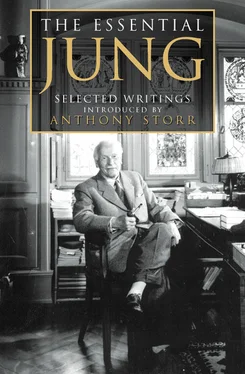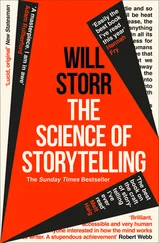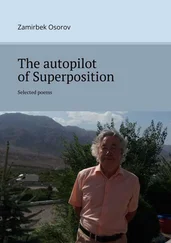One aspect of this phenomenon, the absence of emotional rapport, will be well known to you, as this is a striking disturbance of the reality function. By dint of much psychoanalytic work with these patients we established that this lack of adaptation to reality is compensated by a progressive increase in the creation of fantasies, which goes so far that the dream world becomes more real for the patient than external reality. Schreber found an excellent figurative description for this phenomenon in his delusion about the “end of the world.” He thus depicts the loss of reality in a very concrete way. The dynamic explanation is simple: we say that libido has withdrawn more and more from the external world into the inner world of fantasy, and there had to create, as a substitute for the lost world, a so-called reality equivalent. This substitute is built up piece by piece, so to speak, and it is most interesting to see out of what psychological material this inner world is constructed.
This way of looking at the displacement of libido is based on the everyday use of the term, its original, purely sexual connotation being very rarely remembered. In actual practice we speak simply of libido, and this is understood in so innocuous a sense that Claparède once remarked to me that one could just as well use the word “interest.” The customary use of the term has developed, quite naturally and spontaneously, into a usage which makes it possible to explain Schreber’s end of the world simply as a withdrawal of libido. On this occasion Freud remembered his original sexual definition of libido and tried to come to terms with the change of meaning that had quietly taken place in the meantime. In his paper on Schreber he asks himself whether what the psychoanalytic school calls libido and conceives as “interest from erotic sources” coincides with interest in general. You see that, putting the problem in this way, Freud asks himself the question which Claparède had already answered in practice.
Freud thus broaches the question of whether the loss of reality in schizophrenia, to which I drew attention in my “Psychology of Dementia Praecox,” is due entirely to the withdrawal of erotic interest, or whether this coincides with objective interest in general. We can hardly suppose that the normal “fonction du réel” (Janet) is maintained solely by erotic interest. The fact is that in very many cases reality disappears altogether, so that not a trace of psychological adaptation can be found in these patients. (In these states reality is replaced by complex contents.) We are therefore compelled to admit that not only the erotic interest, but all interest whatsoever, has got lost, and with it the whole adaptation to reality.
Earlier, in my “Psychology of Dementia Praecox,” I tried to get round this difficulty by using the expression “psychic energy,” because I could not base the theory of dementia praecox on the theory of displacements of libido sexually defined. My experience – at that time chiefly psychiatric – did not permit me to understand this latter theory: only later did I come to realize its partial correctness as regards the neuroses, thanks to increased experiences in the field of hysteria and obsessional neurosis. Abnormal displacements of libido, quite definitely sexual, do in fact play a great role in these illnesses. But although very characteristic repressions of sexual libido do take place in the neuroses, the loss of reality so typical of dementia praecox never occurs. In dementia praecox the loss of the reality function is so extreme that it must involve the loss of other instinctual forces whose sexual character must be denied absolutely, for no one is likely to maintain that reality is a function of sex. Moreover, if it were, the withdrawal of erotic interest in the neuroses would necessarily entail a loss of reality comparable to that which occurs in dementia praecox. But, as I said before, this is not the case.
(Another thing to be considered – as Freud also pointed out in his work on the Schreber case – is that the introversion of sexual libido leads to an investment of the ego which might conceivably produce that effect of loss of reality. It is indeed tempting to explain the psychology of the loss in this way. But when we examine more closely the various things that can arise from the withdrawal and introversion of sexual libido, we come to see that though it can produce the psychology of an ascetic anchorite, it cannot produce dementia praecox. The anchorite’s whole endeavour is to exterminate every trace of sexual interest, and this is something that cannot be asserted of dementia praecox. * )
These facts have made it impossible for me to apply Freud’s libido theory to dementia praecox. I am also of the opinion that Abraham’s essay on this subject is theoretically untenable from the standpoint of Freud’s conception of libido. Abraham’s belief that the paranoid system, or the schizophrenic symptomatology, is produced by the withdrawal of sexual libido from the outside world cannot be justified in terms of our present knowledge. For, as Freud has clearly shown, a mere introversion or regression of libido invariably leads to a neurosis and not to dementia praecox. It seems to me impossible simply to transfer the libido theory to dementia praecox, because this disease shows a loss of reality which cannot be explained solely by the loss of erotic interest.
THE GENETIC CONCEPTION OF LIBIDO
The attitude of reserve which I adopted towards the ubiquity of sexuality in my foreword to “The Psychology of Dementia Praecox,” despite the fact that I recognized the psychological mechanisms pointed out by Freud, was dictated by the position of the libido theory at that time. Its sexual definition did not permit me to explain functional disturbances which affect the indefinite sphere of the hunger drive just as much as that of sex solely in the light of a sexual libido theory. Freud’s libido theory had long seemed to me inapplicable to dementia praecox. In my analytical work I noticed that, with growing experience, a slow change in my conception of libido had taken place. Instead of the descriptive definition set forth in Freud’s Three Essays, there gradually took shape a genetic definition of libido, which enabled me to replace the expression “psychic energy” by “libido.”
A very important divergence of view with Freud was over the question of incest. Freud, with his insistence on the literal, believed that neurosis was connected with the persistence of incestuous desires connected with the Oedipus complex. As a previous extract demonstrated, Jung believed that incestuous fantasies were not causal factors in neurosis, but became reactivated as a result of regression in the face of a failure of adaptation in the present. He also began to realize that regression might be a necessary prelude to finding a new and better adaptation. Incest, therefore, could have the symbolic significance of a new synthesis taking place within the individual which pointed toward a creative solution to his problems.
From “Sigmund Freud” MDR, p. 162/167
When I was working on my book about the libido and approaching the end of the chapter “The Sacrifice,” I knew in advance that its publication would cost me my friendship with Freud. For I planned to set down in it my own conception of incest, the decisive transformation of the concept of libido, and various other ideas in which I differed from Freud. To me incest signified a personal complication only in the rarest cases. Usually incest has a highly religious aspect, for which reason the incest theme plays a decisive part in almost all cosmogonies and in numerous myths. But Freud clung to the literal interpretation of it and could not grasp the spiritual significance of incest as a symbol. I knew that he would never be able to accept any of my ideas on this subject.
Читать дальше












